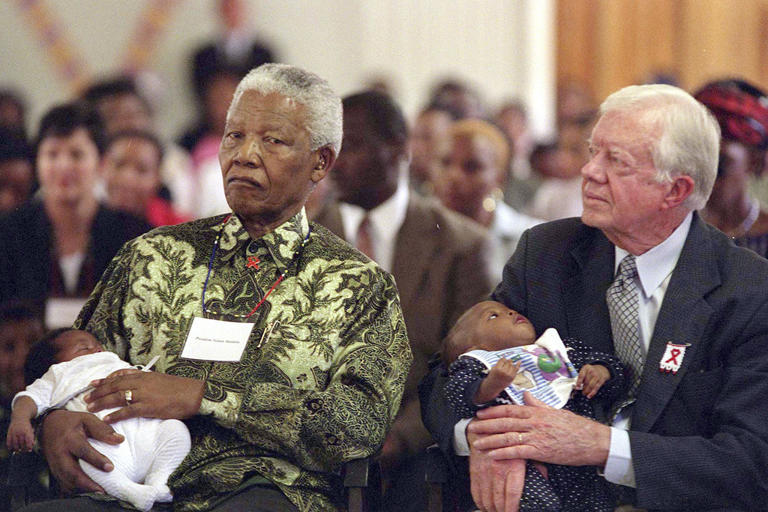
Edson Baraukwa | Africa Guardian
Jimmy Carter’s impact on Africa remains unmatched among U.S. presidents. As the first to make a state visit to sub-Saharan Africa, Carter championed Zimbabwe’s transition to independence, describing it as “our greatest single success.” By the time he passed away at 100, his foundation was on the brink of eradicating Guinea worm disease, marking the most significant global disease elimination since smallpox.
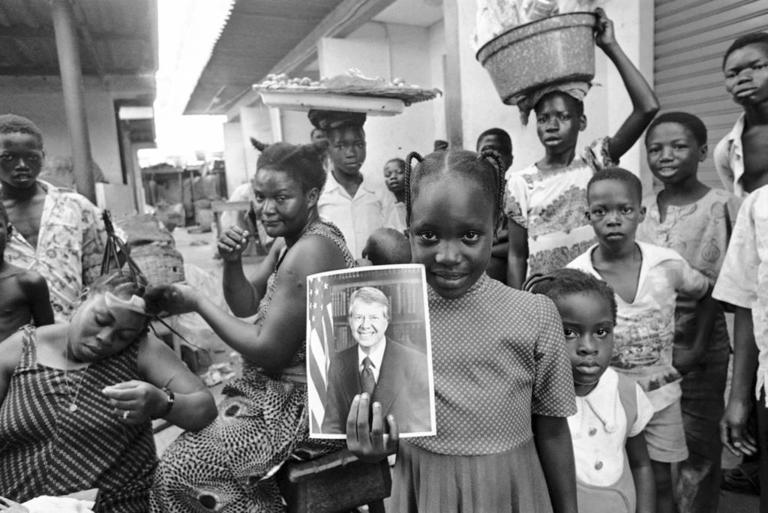
Africa, a region with a population rivaling China’s and projected to double by 2050, vividly showcases Carter’s enduring legacy. Before his presidency, U.S. leaders largely ignored Africa, even as waves of independence swept across the continent in the 1960s and 1970s.
During his historic 1978 visit to Nigeria, Carter declared, “The day of the so-called ugly American is over.” Warmly received in Africa’s most populous nation, he joked with Nigerian President Olusegun Obasanjo about going into peanut farming together, signaling a shift from U.S. aloofness.
A Humanitarian Driven by Faith and Justice
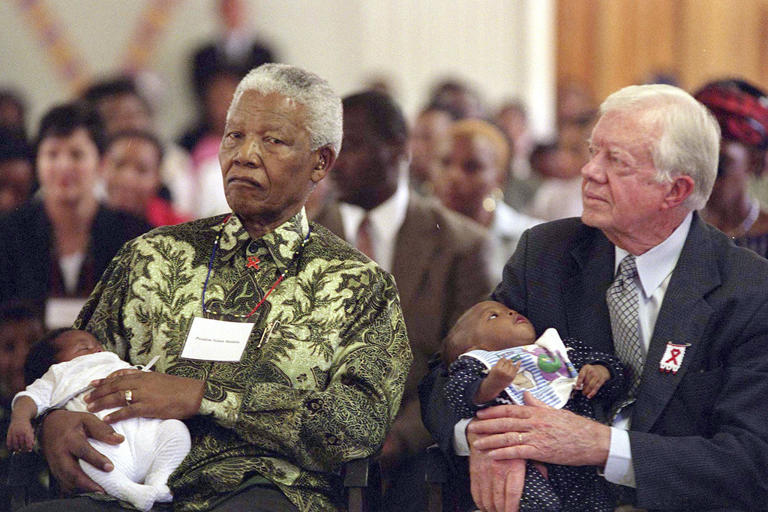
The Cold War’s geopolitical tensions brought Africa into Carter’s focus as the U.S. vied with the Soviet Union for influence. However, Carter’s commitment ran deeper, shaped by his Baptist missionary roots and his experiences with racial injustice in the U.S. South.
“For too long, our country ignored Africa,” Carter told the Democratic National Committee in his first year as president. African leaders welcomed this new interest, with Zambia’s President Kenneth Kaunda remarking, “There is an air of freshness which is invigorating.”
After his first African tour, Carter noted a common theme among African leaders: a desire for non-alignment. “We want to manage our own affairs…and be friends with both superpowers,” they told him. This sentiment resonates today as Africa navigates relationships with China, Russia, and the U.S., all vying for access to its vast resources.
Championing Human Rights and Independence
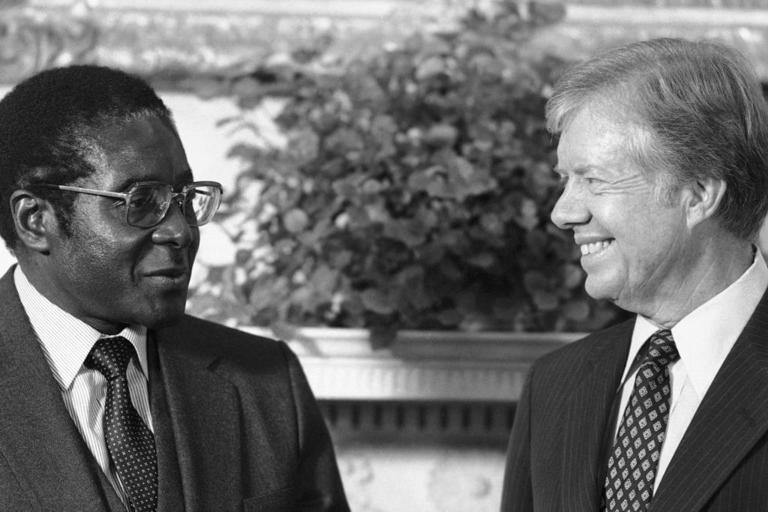
Carter placed human rights at the center of U.S. foreign policy, a vision he carried into his post-presidency work. Over four decades, he visited Africa 43 times, spearheading initiatives through The Carter Center to empower Africans in shaping their futures.
As president, Carter celebrated Zimbabwe’s independence in 1980, hosting Prime Minister Robert Mugabe at the White House. Quoting Martin Luther King Jr., he declared, “Injustice anywhere is a threat to justice everywhere.” Historian Nancy Mitchell revealed that Carter dedicated more time to Rhodesia (now Zimbabwe) than to the Middle East during his presidency.
Relations with Zimbabwe soured as Mugabe’s regime grew oppressive, but Carter remained steadfast in criticizing authoritarianism, describing the country as “a basket case” by 2008.
Tackling Disease and Strengthening Democracy
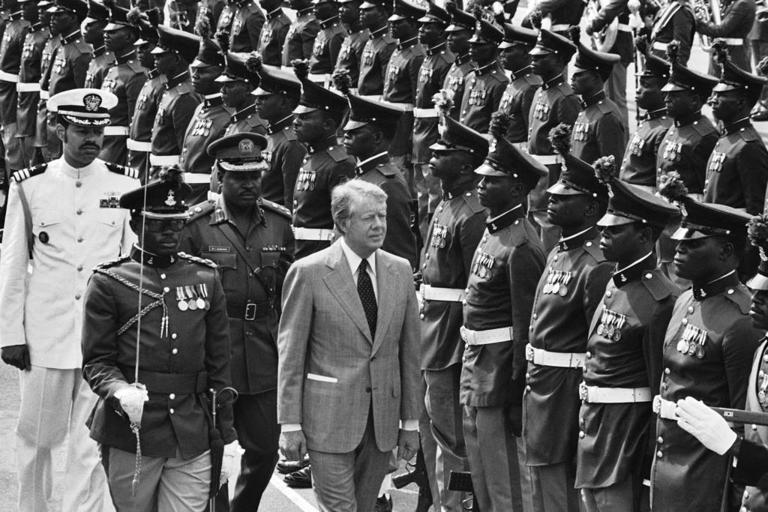
The Carter Center’s work in Africa extended to monitoring elections, brokering peace, and combating diseases. Fighting Guinea worm disease became Carter’s lifelong mission, with cases plummeting from millions to just 14 in 2023.
In Sudan, Carter brokered a four-month “Guinea worm cease-fire” in 1995, enabling health workers to reach thousands of affected villages. “He taught us faith,” said Makoy Samuel Yibi, South Sudan’s Guinea worm eradication leader. “To have the leader of the free world uplift the poorest among us is a touching virtue.”
Carter also confronted AIDS denialism in South Africa, once clashing with then-President Thabo Mbeki over his refusal to address the epidemic. His persistence left a lasting impression on health officials, with Ethiopia, Africa’s second most populous country, reporting zero Guinea worm cases in 2023.
“President Carter worked for all humankind irrespective of race, religion, or status,” said Ethiopia’s former health minister, Lia Tadesse.
A Legacy Beyond Borders
From promoting democracy to eradicating disease, Carter’s dedication to Africa exemplified his belief in humanity’s shared rights and dignity. As Sudanese legal scholar Abdullahi Ahmed An-Naim noted, “Carter is the single person in the world who has done the most for advancing this idea.”
Even decades after leaving office, Carter’s profound connection with Africa remains a testament to his vision of justice and compassion for all.
___
